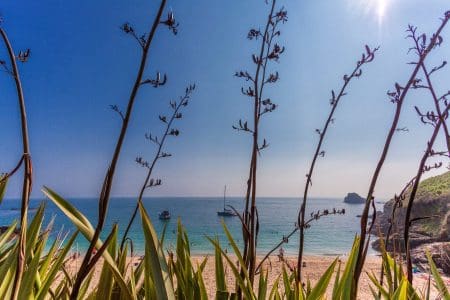The Tourism Strategy Agency of the Balearic Islands (AETIB) celebrates five years since the launch of the sustainable tourism tax in the archipelago. Since the initiative was launched, 270 million euros have been raised which has been invested in 170 sustainable tourism initiatives in Mallorca, Menorca, Ibiza and Formentera.
The sustainable tourism tax has been in place since 2016 and is applied to all stays in tourist accommodation across the Balearic Islands. The eco-tax provides revenue for a fund established to promote sustainable tourism, established by Balearic Island institutions, and channeled into important initiatives to counteract the impact of tourism on the islands.
Minister of tourism, Iago Negueruela says, “British tourism is essential for our islands and the UK is our second source market in terms of visitor numbers. The tourism industry accounts for around 35% of our islands’ GDP and it is essential that we bring visitors back, however our ambition is that we do so in a sustainable way, continuing to roll out sustainable initiatives to counteract any negative environmental impacts.
“Our visitors have directly helped us have fund a huge number of initiatives to promote ecotourism, help preserve the environment and restore our cultural heritage. Behind the scenes, we continue to work intensely with the private sector; including businesses and trade unions to restart the tourism season and its activities as soon as restrictions are relaxed. Within this, 2021 will see the development of several key tourism projects funded by the sustainable tourism tax.”
Some of the projects currently underway include:
IBIZA’S PHOENICIAN SETTLEMENT, DECLARED A UNESCO WORLD HERITAGE SITE, WILL BE REPURPOSED AS A NEW CENTRE OF INTERPRETATION
The Balearics Islands will regenerate the Phoenician settlement of Sa Caleta in Ibiza aiming to convert this historic and heritage space into a cultural site for visitors. The Phoenician settlement (UNESCO World Heritage site), which dates back to the end of the 8th century BC, contains evidence of the island’s first settlement, dating back well over a millennium. Planned works include the restoration of all the site and the coastal fortification nearby, which was built in the 20th century to help the island defend itself and has been recognised as an asset of cultural interest. In 2023, Ibiza will welcome an interpretation centre to provide visitors with a deeper understanding of the cultural aspects of the Phoenician settlement, thanks to the funds of the sustainable tourism tax.
A NEW APP TO HELP PROTECT THE MARINE BIOLOGY OF THE BALEARIC ISLANDS
In spring 2021, the Balearic Islands Tourist Board aims to complete the , funded by the sustainable tourism tax. The Posidonia Oceanica is a seagrass found growing in the Mediterranean around the Balearic Islands, especially in Formentera, believed to be one of the most important sources of oxygen in these coastal waters, creating a unique marine biodiversity. Once the cartography is completed, the tourist board will launch a new app, providing details of permitted anchoring areas (and indicating no-anchorage zones for boating vessels).
A NEW ECOFRIENDLY HUT IN MALLORCA’S SERRA DE TRAMUNTANA
The Balearic Islands is transforming Ses Porqueres de Galatzó, a building which originally served as an animal shelter, into a modern and environmentally friendly mountain refuge located in the western part of the island. The building lies on the picturesque Ruta de Piedra Seco (Dry Stone Route), which offers a series of hiking paths running through scenic Mallorcan pine forests, malvasía vines (Mediterranean grapes) and olive groves, typical of the Balearic Islands.
RESTORATION OF SAN DIEGO CONVENT, HOME TO THE FUTURE MENORCA’S GASTRONOMY CENTRE
The Government of the Balearic Islands acquired the 17th-century San Diego convent, which is protected as a cultural asset. From the time of its acquisition through to the present day it has undergone a complete refurbishment.
The next step is completion including the restoration of the grisailles murals, which are of great cultural value. The project aims to include a new “Menorca Gastronomy Centre”, showcasing and protecting local cuisine and traditional cooking methods. Menorca’s Gastronomy Centre will open its doors in 2022.



